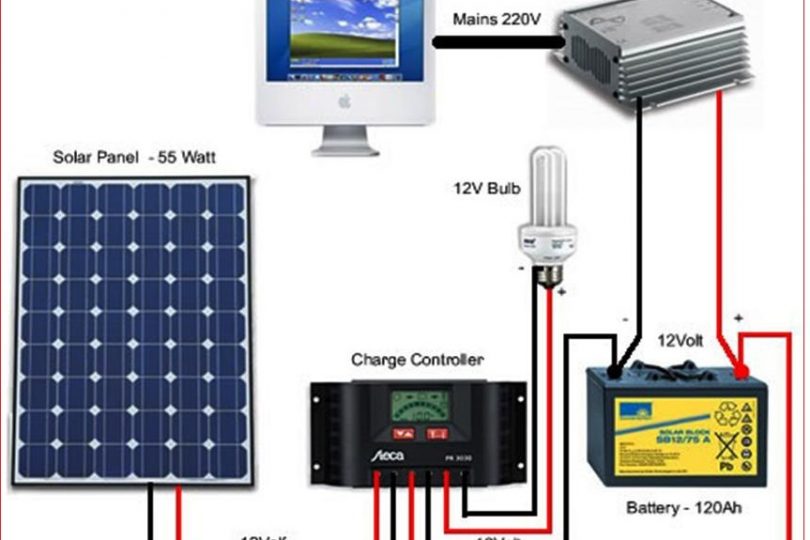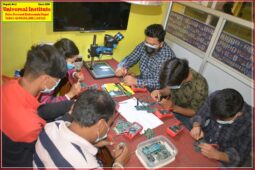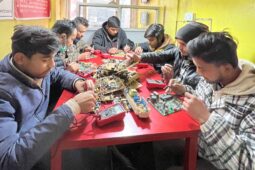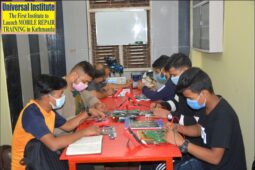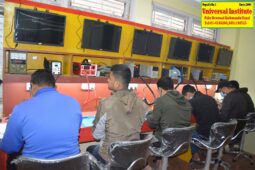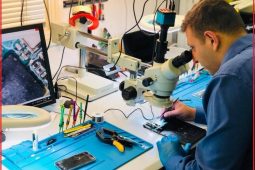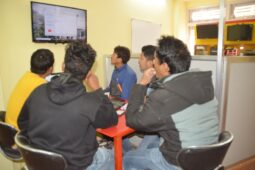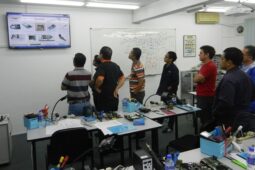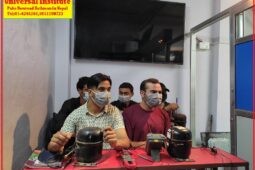Solar Energy Repair/Fitting Course in Kathmandu
Universal Institute is a Solar energy Repair training and research institute in Nepal.The Solar Energy sector provides business opportunities by imparting technical and practical skills through systematic curriculum. One of the most critical components of aggressive rooftop solar deployment is the availability of highly skilled & qualified installers. Our training programs are well structured to cater different portfolio of solar Energy Training and Management to our students. Standard residential or commercial solar power systems consist of a core set of components – (Solar Panels, Inverters, DC/AC Disconnects, Meters, Wiring, Racking and Mounting), these are usually grid-tied. Some systems require additional components added to the core set to function – (Charge Controllers, Batteries, Additional Balance of Systems items and more), these are usually off-grid.
Solar Energy Repair Training in Kathmandu
1.Solar Panels or PV(Photovoltaic) modules are the most commonly known component in a photovoltaic array. Made up of mostly solar cells, framing, and glass; solar panels work by collecting and harnessing photovoltaic energy from the sun, and delivering that energy as ‘direct current’ (DC) power to an inverter or converter component (may be a charge controller in some instances). Solar Panels consist of two most well-known types of solar cells, Polycrystalline and Monocrystalline. The difference consists of how silicon crystals in the ingots or wafers are harvested, developed and formed, each creating a different look and color to their appearance. Both types of PV cells are known to be effective in their general ability to produce solar electricity.
2.Inverters (or Converters) intake DC power generated by a solar panel and process that energy by converting it into AC power, the resulting power can then be sent to a breaker or balance of system component and is available for standard use. Inverters may be located after a charge controller and battery bank in certain off-grid energy systems.
3.Charge Controllers work to regulate electrical charge and they limit the rate at which electric current is added to or withdrawn from the Batteries. They work to control voltage and watts from Solar Panels; thus, passing through more stable energy, preventing overcharging and protecting against overvoltage – which can hinder and reduce Battery performance or lifespan.
4.Batteries enable the ability to store solar power for use at a later date. They are used within off-grid or hybrid solar electric arrays, which require power to be used in the case of lack of available sunlight (night time), unstable power distribution from a utility company, or lack of access to a utility supplier.
5.Wiring acts to ensure other solar energy components are interconnected, and can pass energy from one device onto another. PV Wire is commonly used to move energy from the Solar Modules to the Inverter(s), and then be transformed to be sent for another product within the photovoltaic array supply chain.

About the Solar Energy course:
This course has been developed by Universal Institute of Solar Energy (UISE). This is a 45 days course designed for technical, non-technical and business persons who is interested in the solar sector. The participants will be receiving a certificate from Universal Institute.
Career opportunities:
Certificates course will help the participants to explore the career possibilities in the following areas:
- Site Engineer related to Solar Energy
- Project engineer
- Solar Power Plant Designer
- Installer, O & M
- Trainer
Topics to be covered:
General aspects of energy system, basic electrical, solar resources for photovoltaic system,physics of photovoltaic system and its applications overview and selection criteria for module, module structures ,overview and selection criteria for solar inverters, battery and charge controller, solar PV balance of system, types of photovoltaic system,understanding of single line diagram, performance evaluation tools.and, health and safety, site assessment/survey and project planning along with toolkits, project design and documentation including cost analysis, design documentation, bill of materials, economic efficiency report project feasibility,solar PV system installation and its application design and calculation, Street light design and calculation, Solar water pump design and calculation, Overview of pre-commissioning inspection parameters of solar PV plant, overview of post-commissioning inspection parameters of solar PV plant, system operation and maintenance-troubleshooting: o & m, national and state level policies, Govt schemes, and available vendors, financial calculation of SPV power plant, solar thermal, performance evaluation and O & M of solar thermal systems, designing of concentrated solar thermal & solar water heating system.
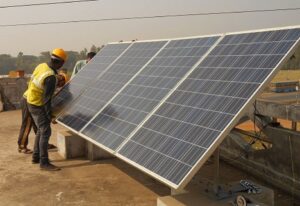
Learning outcomes:
- Understand the basics solar energy and concept of solar PV (photovoltaic) system.
- Survey a solar PV installation site &Installation of solar PV system based on the relevant designs and drawings.
- Understand all equipment related to solar PV system
- Design any solar PV system as per Customer’s requirements as well as appropriate codes and standards
- Operation and Maintenance of solar PV system including identification and troubleshooting of faults along with ensuring of safety while installation and operation.
- Understand the basics concept of various solar thermal technologies.
- Understand all equipment related to the solar thermal system.
- Prepare the necessary technical documents related to the design, installation and operation of the solar thermal system.
- Ground mounted solar, Rooftop solar, Grid connected rooftop solar PV system, Off-grid system applications (home lighting, street lighting & lantern) and solar water pump.
Course duration and course fee per participant:
Basic Level-20days: 7500/-
Advance Level full-45 days : 15000/-
Training Time: 1 to 2 Hours Per day(Theory + Practical)
Language of instruction: Nepali/Hindi/English
Eligibility Criteria: 8 to 10th Class(At Least Completed Grade 8)
Group structure: 6 Participants Per Group
New classes starts on: 1st,10th and 20th(Every Month)
Related Posts:
- Mobile Repair (Advance Chip Level)
- Computer/Laptop repair (Advance Chip Level)
- Advance Mobile Software (Full)
- TV(LCD/LED/Smart) Repair Course
- Basic Electronics & PWR Supply Course 45 days
- eMMC/UFS/Nand Training 30 days
- AC & Fridge Repair Training 60 days
- Washing Machine Repair Course-30 days
- Building Electricians(House wiring) 45 days
- CCTV Camera Opearting & Installation 45 days
- Home Appliances Repair Training 45 days
- Printer Repair (Dot-Matrix, Ink-Jak, Laser)
- Hobby Electronics Projects 45 days
- Drone Assembling Course 15 days
- Laptop Repair (Basic Card Level-1)
